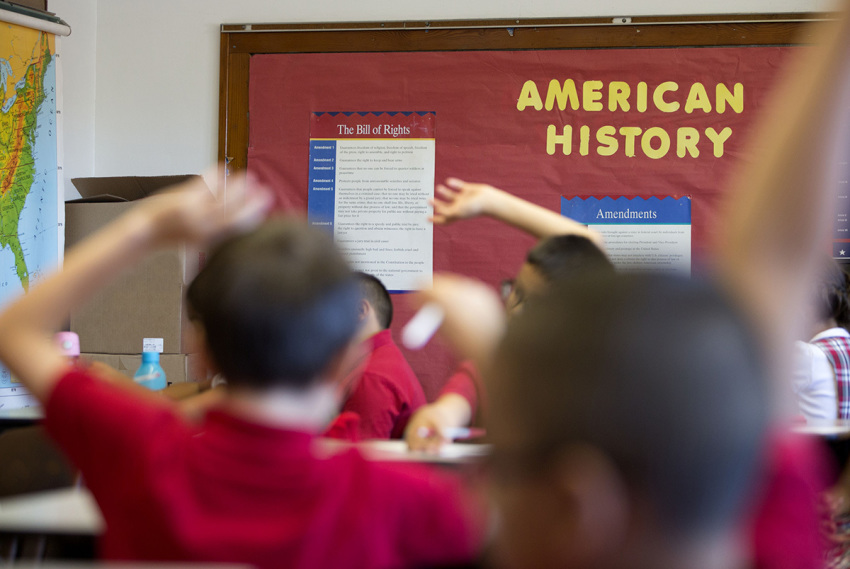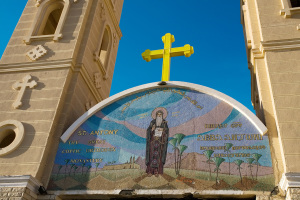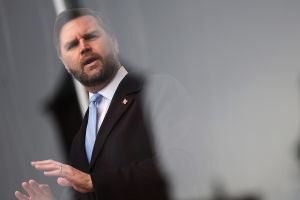Colorado approves adding LGBT language into history curriculum after yearlong debate

States are taking different approaches to how their schools teach sensitive subjects in history classes, with Colorado and Virginia taking the spotlight last week.
Colorado's State Board of Education voted last Thursday in a 4-3 party-line vote to update the state's social studies curriculum for all grade levels, restoring references to the LGBT community and marginalized racial minorities that had been cut earlier this year after some parents expressed concerns over a lack of diversity.
CPR News reported that the state board of education would require schools' social studies curriculum to reference minority groups throughout all grade levels in compliance with Colorado law. Board member Lisa Escárcega said that she included references to certain races and LGBT individuals at the top of the recommendations due to the importance of such groups.
The changes come as the state conducts its annual revision of academic standards, something Colorado does every six years.
The Colorado State Board of Education did not immediately respond to The Christian Post's request for comment.
The board made recommendations for the curriculum standards last November that caused controversy.
The recommendations updated social studies standards to include references to minority groups highlighted in a law passed by the legislature in 2019 calling for the inclusion of more diverse views in children's history lessons. The law requires schools to include perspectives of LGBT people, African Americans, Latinos, American Indians and Asian Americans.
After concerns were raised about "age-appropriateness," the committee eliminated references to LGBT people for students below fourth grade in April.
Republican Board member Steve Durham objected to exposing preschoolers to LGBT topics, arguing that the "impact and discussion of sexual issues is the same for kindergartens as it is for high school students."
Democratic board members and Escárcega argued that LGBT issues are not sexual topics, claiming the topic may come up during discussions about families, even in lower grades, according to CPR.
In a Monday statement to The Christian Post, a spokesperson for the Colorado Statewide Parent Coalition, which supported references to LGBT people, said the standards were based "on research and best practice."
"The cuts that were made to eliminate certain references to the LGBTQ community and the realities of racism in our history perpetuate xenophobia, homophobia and false understandings of our collective histories," the spokesperson wrote.
Before the vote, the board allowed for public comments.
Except for two speakers, all who spoke called for restoring references to LGBT individuals. One parent who opposed restoring references to the LGBT community, Mary Goodley, stated that parents reserve the right to teach their children about complex social issues.
"Teaching children about particular sexual or gender notions is a clear violation of parental rights and not only serves to further discredit, but also decreases trust in the public education model," she said, as quoted by CPR.
The standards will go into effect next year.
Last month, the Colorado school board voted 4 to 3 to reject American Birthright social studies standards, a model promoted by the conservative National Association of Scholars. Those standards aim to teach children where their freedoms come from and "why their country deserves to be loved."
Thursday's vote in Colorado came the day before the Virginia Department of Education under Republican Gov. Glenn Youngkin proposed new revisions that would alter former Gov. Ralph Northam's proposed history and social science guidelines in the state's schools.
"The standards will recognize the world impact of America's quest for a 'more perfect Union' and the optimism, ideals and imagery captured by Ronald Reagan's 'shining city upon a hill' speech," the proposal reads. "Students will know our nation's exceptional strengths, including individual innovation, moral character, ingenuity and adventure, while learning from terrible periods and actions in direct conflict with these ideals."
The 53-page proposal includes teaching kindergarteners about patriotism and how certain symbols are used to honor the country. Fourth-grade students would learn about the Civil War and Reconstruction eras, and 11th-grade students would study Christopher Columbus and the enslavement of African-Americans.
If the Virginia Board of Education adopts the draft proposal, the new standards will go into effect for seven years, according to a factsheet sent to Virginia legislators on Friday.
The new standards would be taught during the 2024-2025 school year, and professional development will start in the summer of 2023.
The administration claims these changes are necessary to provide clarity for educators and expand parental involvement.
"The August 2022 draft standards were unnecessarily difficult for educators to understand and implement; they were also inaccessible for parents and families," the factsheet reads. "The November 2022 revised standards are easily understood and implemented through a logical progression with a recommended grade level sequence."
The proposed history curriculum under Northam would have included lessons on LGBT issues and social justice, in addition to halting requirements to teach lessons on Christopher Columbus and Benjamin Franklin.
The Northam standards also would not have included lessons on why James Madison is called the "Father of the Constitution" and George Washington is called the "Father of our Country." Under the new draft, fourth-grade students would once again learn why Madison and Washington have these titles.
Critics, such as the Virginia Education Association, a union representing more than 40,000 education workers, contend the proposed standards will impede academic instruction.
VEA President James J. Fedderman said in a Saturday statement to The Washington Post that he believes the new standards contain "political bias" and refer to enslaved people with "outdated language."
Former Trump administration official and founder of the education advocacy group Fight For Schools, Ian Prior, supports the changes. Prior told The Post that if applied "correctly," the changes could unlock key critical thinking skills that students can use to make their own analysis and decision as they mature into young leaders."
The Virginia Education Association did not immediately respond to The Christian Post's request for comment.
Education appeared to be a relevant issue last November when Youngkin defeated Democratic challenger Terry McAuliffe in the Virginia gubernatorial race.
Amid national attention surrounding parental involvement in education, McAuliffe argued in a debate against parents being able to tell schools what to teach. Youngkin responded to these concerns by promoting himself as an advocate for parental involvement in education.
In September, the state's Department of Education reversed another one of Northam's directives involving trans-identifying students. The new directive prohibits students from identifying as the opposite gender without documentation and requires schools to keep parents informed about their child's "psychological development."
Samantha Kamman is a reporter for The Christian Post. She can be reached at: samantha.kamman@christianpost.com.



























